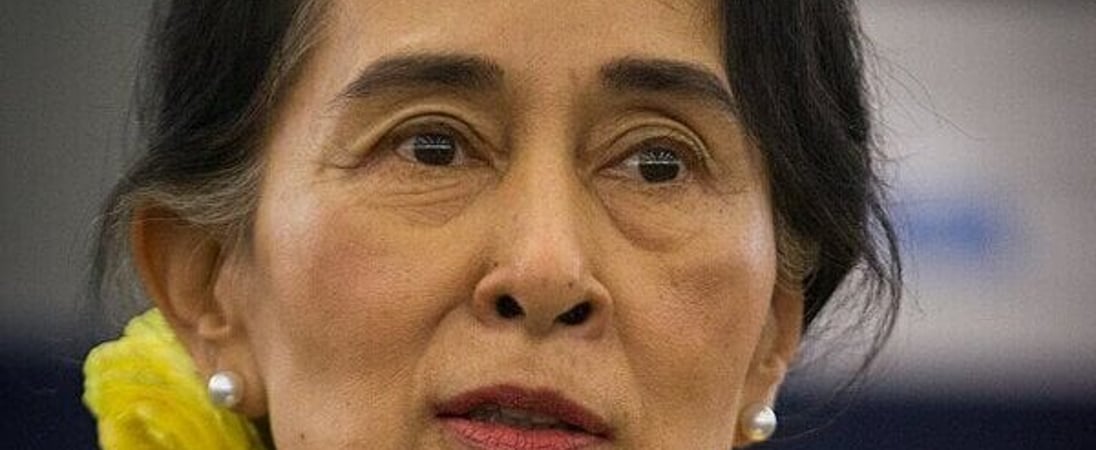
Aung San Suu Kyi's birthday
Aung San Suu Kyi, born June 19, 1945, is a leader from Myanmar who fought for democracy. Her life has been full of challenges and achievements.
Suu Kyi spent many years under house arrest because she stood up for her beliefs. Despite this, she never gave up on her dream of a free country. Her story inspires people all over the world.
Aung San Suu Kyi’s Early Years
Aung San Suu Kyi grew up in Yangon, Myanmar. She was the daughter of Aung San, a hero who fought for independence. Her father’s death when she was just two left a big mark on her life. Suu Kyi went to school in Yangon, where she was a bright student.
In 1960, her mother’s job took the family to India. There, Suu Kyi attended high school and saw different cultures. She loved learning and was curious about the world. After high school, she went to the University of Delhi. Suu Kyi studied politics there, earning her degree in 1964.
Her thirst for knowledge didn’t stop. Suu Kyi moved to Oxford University in the UK. She focused on philosophy, economics, and politics.
Oxford was a place where she made lifelong friends and deepened her understanding. Suu Kyi graduated in 1968, ready to face the world with her ideas.
These years shaped her into a thoughtful leader. Suu Kyi’s education taught her about freedom and justice. She carried these lessons back to Myanmar, determined to make a difference.
Triumphs and Milestones of Aung San Suu Kyi
Aung San Suu Kyi’s journey is marked by her tireless fight for democracy in Myanmar. Her most significant achievement came in 1991.
That year, while under house arrest, she won the Nobel Peace Prize. The world recognized her nonviolent struggle for democracy and human rights, and this prize brought international attention to Myanmar’s fight for freedom.
Despite being confined to her home for nearly 15 years out of 21 years, Suu Kyi remained a symbol of hope.
Her party, the National League for Democracy (NLD), won a landslide victory in 2015. This win marked a historic turn for Myanmar and led to her role in government. It was a moment of triumph for Suu Kyi and her supporters.
Beyond politics, Suu Kyi also made strides in personal ventures. She wrote books and essays on freedom and democracy.
Her writings inspired people worldwide to stand up for their rights. Suu Kyi also advocated for health and education in Myanmar, working to improve the lives of ordinary people.
Her resilience in adversity is a key part of her legacy. Suu Kyi showed the world the power of peaceful protest and moral courage. Her life’s work inspires those fighting for justice and freedom everywhere.
Interesting Facts About Aung San Suu Kyi
Linguistic Talent: Aung San Suu Kyi is fluent in several languages, including English, Burmese, French, and Japanese. Her language skills helped her connect with a global audience.
Family Ties to Leadership: Her father, General Aung San, is considered the father of modern-day Myanmar. He played a crucial role in gaining independence from British rule.
United Nations Work: Before her political career, Suu Kyi worked at the United Nations in New York, which deepened her understanding of international relations.
Motherhood: She is a mother of two sons, Alexander and Kim. Despite her political struggles, she tried to maintain a strong bond with them.
Husband’s Support: Her late husband, Michael Aris, was a British scholar. He campaigned tirelessly for her release from house arrest, even though they were apart for most of their marriage.
Nobel Peace Prize Money: She used her Nobel Prize money to establish a health and education trust for the Burmese people.
Honorary Citizenship: Several countries, including Canada, have awarded her honorary citizenship in recognition of her struggle for democracy.
Also on this date...
World Tapas Day
Enjoy an array of small dishes or appetizers in place of a big meal in order to thank the country of Spain for introducing the world to tapas.
Real Food Day
Nourish your body with fresh, whole foods that fuel your energy and leave you feeling satisfied, without the guilt and sluggishness of processed junk.
World Sickle Cell Day
Help increase public knowledge and awareness of Sickle Cell Disease, one of the main causes of death in children under the age of five in Africa.
National Garfield the Cat Day
Settle in with some coffee and lasagna as a nod to the pop culture icon Garfield, the cat who captured our hearts first as a comic strip, then in movies and more.




